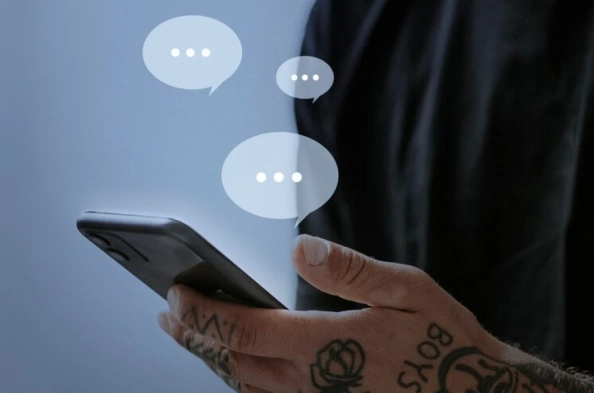The increasing integration of AI chatbots like ChatGPT into everyday digital interactions has brought not only impressive conversations but also significant data privacy challenges. These AI-driven platforms are designed to engage users across a wide array of topics, making them popular tools for both personal and professional use. However, the burgeoning reliance on these chatbots reveals an underlying risk: users often unconsciously share personal data that can later resurface in unexpected ways. As AI chatbots log user interactions and store sensitive information on servers, the potential for data privacy issues arises, necessitating an in-depth exploration of the related consequences.
The Data Usage Dilemma
The intrinsic risk associated with AI chatbots primarily stems from their data usage for training their large language models (LLMs). Companies like OpenAI use the data provided by users to continuously enhance the conversational abilities of their AI models, making them increasingly human-like. A parallel can be drawn to the film “Terminator 2: Judgment Day,” where teaching personal phrases to the Terminator makes it appear more human. Similarly, chatbots become more adept at interactions through user data. However, OpenAI openly states in its terms and conditions the right to use this user data for model improvement purposes. This translates to an essential vulnerability—ChatGPT logs all conversations unless the user deliberately disables the chat history saving feature. Consequently, sensitive information such as financial details, passwords, and home addresses, if shared, becomes accessible and stored on servers.
Without enabling privacy settings, user-uploaded files and feedback are also stored, adding another layer of risk. Compounding this, OpenAI’s terms indicate that personal data might be aggregated or de-identified for further analysis. This creates the possibility that data unintentionally learned by the chatbot could become publicly accessible, an alarming prospect for anyone concerned about their data privacy. Although AI companies typically do not intend to misuse stored data, the potential for data breaches remains an ever-present threat. Noteworthy is the incident in May 2023, where a vulnerability in ChatGPT’s Redis library was exploited by hackers, leading to the theft of personal data such as names, social security numbers, job titles, emails, phone numbers, and social media profiles from roughly 101,000 users. Despite OpenAI’s effort to remedy the vulnerability, the breach confirmed the latent security risks associated with using these chatbots.
Privacy Settings and User Awareness
Understanding and effectively utilizing privacy settings available on AI chatbots is critical for mitigating risks. Despite OpenAI’s proactive stance in reducing personal data used in training systems, users must remain vigilant about the potential for these systems to involuntarily request sensitive information. As companies continue to grapple with ensuring data security, integrating privacy-centric features in their platforms becomes paramount. Users must be alert to toggling privacy settings that prevent the saving of chat histories and avoid sharing identifiable or private information during conversations.
The prevalence of data breaches underscores the importance of responsible data handling and user education. Measures like the ability to toggle off chat history saving are significant steps, but these tools alone cannot offer absolute protection. It becomes essential for individuals to remain cautious and for organizations to enact stringent data security protocols. As evidenced, approximately 101,000 users saw their data exposed due to a Redis vulnerability in ChatGPT’s Redis library, a stark reminder of the susceptibility of even well-regarded AI systems. Considering these risks, privacy-concerned users must carefully manage their interactions with chatbots to minimize exposure to potential breaches.
Organizational Challenges and Data Leaks
Organizations face a compounded challenge when dealing with AI chatbots—the need to protect not only individual data but also sensitive company information. Samsung’s incident where engineers inadvertently uploaded crucial source code to ChatGPT serves as a cautionary tale. This mishap led to the company banning the use of generative AI chatbots for work purposes. Following this precautionary principle, major corporations such as Bank of America, Citigroup, and JPMorgan also restricted the use of these chatbots to avert possible data leaks. This growing consciousness among corporations about the potential risks of AI chatbots marks a move towards better data security practices, even as these tools offer undeniable productivity enhancements.
The organizational imperative to secure data finds resonance with government initiatives aimed at safeguarding privacy. A notable step is U.S. President Joe Biden’s Executive Order on the Safe, Secure, and Trustworthy Development and Use of Artificial Intelligence, signed on October 30, 2021. This directive outlines crucial principles for AI deployment in the U.S., emphasizing privacy and personal data protection. However, the real-world implementation of these principles may vary and pose interpretation challenges for AI companies. The practical application and enforcement of such regulations remain critical in ensuring data security amidst the expanding use of AI technologies.
Legal Gaps and the Need for Regulation
The growing integration of AI chatbots like ChatGPT into daily digital interactions has not only facilitated highly engaging conversations but has also introduced notable data privacy challenges. These AI-driven platforms excel at interacting with users on a multitude of topics, making them invaluable for both personal and professional scenarios. However, their increasing use highlights a significant risk: users tend to share personal information unconsciously, which can later be retrieved in unexpected and potentially harmful ways. Since these AI chatbots log interactions and save sensitive data on servers, the likelihood of data privacy breaches increases. This situation calls for a comprehensive examination of the implications related to these data privacy concerns. Effective strategies are needed to ensure that users’ private information remains secure while enjoying the benefits of AI chatbots. Potential solutions include better encryption methods, user education on data sharing risks, and stricter regulations governing how AI platforms manage and store data to protect privacy.






